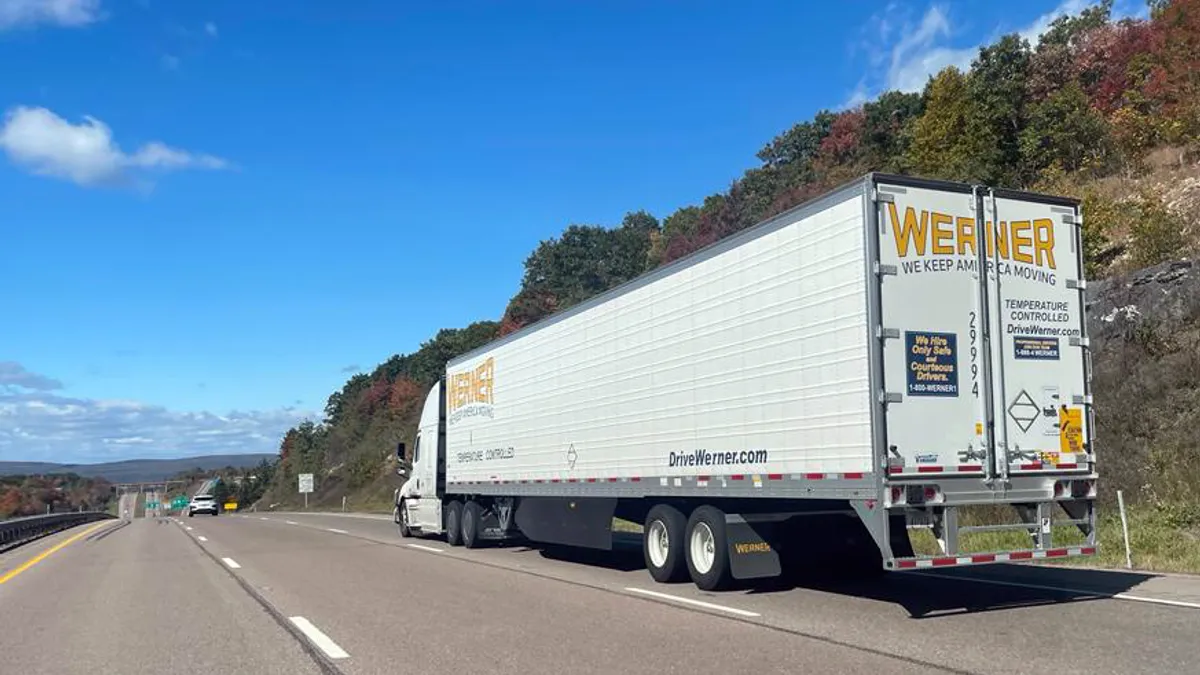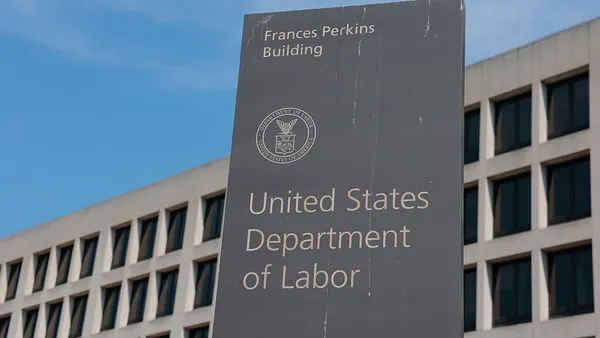Dive Brief:
- Spot rates have softened since the Fourth of July, but Werner Enterprises executives see room for improvement as tightening enforcement removes more drivers and trucks from the market, according to its Oct. 30 earnings call.
- Chairman and CEO Derek Leathers believes the pace of exits will quicken given the stricter enforcement of federal policy for English language proficiency as well as cabotage restrictions on foreign drivers and rules governing non-domicile CDLs.
- “For the record, on all of the above issues, we like our position and our fleet position very much, and we encourage increased enforcement on all of the above,” he said during the earnings call.
Dive Insight:
Earlier this year, the Trump administration moved to tighten trucking rules — making ELP violations an out-of-service offense, halting some driver visas, and raising ID requirements for immigrant CDL holders. The American Trucking Associations has also urged Congress to expand English testing and make tougher CDL requirements.
Leathers told analysts that at the current rate of enforcement, roughly 30,000 drivers could be placed out of service for failing to meet ELP requirements — a figure that’s climbing as more states prioritize the issue as a safety concern.
He added that there are an estimated 200,000 non-domiciled CDL holders nationwide, and while some overlap exists between the two categories, the combined impact is causing “a significant change in market dynamics.”
Through its terminal network, Werner is hearing accounts of fleets losing drivers to enforcement fears.
“We’ve seen some truck cancellations from fleets that were purchasing trucks from us that unbeknownst to us had drivers of those types maybe in their fleet and have had to cancel because they now are sitting with open trucks,” Leathers said.
Despite potential benefits from tighter capacity, Werner still faces industry-wide headwinds: higher operating costs and muted freight demand. The company reported $520 million in Q3 revenue, down 1% year over year, and its operating income fell 63% to $8.9 million.













